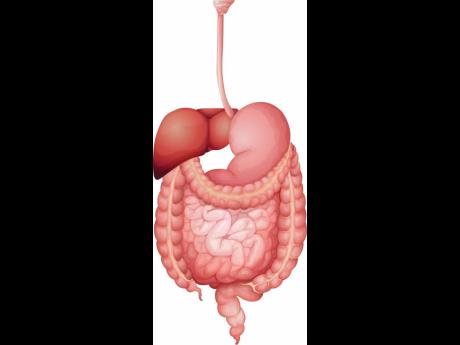The non-traditional approach to treating colon cancer
Complementary and alternative medicine for colon cancer, also called CAM, involves non-traditional approaches to medicine that help manage a patient’s care. Used together with conventional medicine, it doesn’t replace traditional, science-based treatments, but it’s used alongside them.
Many complementary medicine strategies are safe for patients and provide relief and comfort. For example, using aromatherapy decreases patient discomfort after surgery. These methods can be safely used and may minimise side effects, which can increase quality of life tremendously.
All persons are different and so respond to treatments differently, so before seeking these approaches, talk to your doctor to make sure that it is safe for you.
Haematologist and oncologist Dr Andre Williams of Teshuva Wellness believes the body was built to heal itself, and employs his wealth of experience to guide persons to complete wellness. Patients, he said, should always be given the option of conventional therapy.
“My number one approach to any cancer patient is to support the liver. The reason for that is simple. If we are going to be successful in eliminating the cancer, the breakdown products are going to be sent to the liver for processing, and they are going to need to be detoxified,” Williams said.
“So if the liver is not healthy, which it often isn’t in cancer patients, then we are actually giving it more work to do, which is pushing the patient ever so much closer to liver failure with each intervention that we make,” he added.
In order to support the liver, Williams said diet and nutrition is of critical importance for supporting cellular metabolism in cancer patients, as the normal healthy cells will still need nutrients, and the body will still need nourishment if it is going to correct the cancer that it has formed.
IDEAL DIET FOR TUMOURS
“Plant-based diets have been shown to be ideal, certainly for solid tumours, and in this case colon cancer. What we are hoping to do is to reduce the burden on the liver, which reduces the burden on the intestines to absorb the nutrients. We want to develop a diet that is providing nutrients without requiring too much enzymatic work,” Williams said.
According to Williams, other stages include improving oxygen utilisation, immune system support, and to identify any unique nervous system block, especially emotional issues that are common among cancer patients.
“Once these have all been established, then we can discuss with the person, treatment as necessary. I am not against chemotherapy or radiation. I am just of the opinion that we have to make sure that the patient is adequately prepared prior to chemotherapy and radiation. Certainly, in the case of colon cancer, where the surgeons can treat the cancer, it is a must,” Williams said.
Colon cancer occurs in the large intestine. If the cancer is in the last six inches of the colon, the rectum, it is considered rectal cancer. The colon is the lower part of the digestive system, which processes food for energy and rids the body of solid waste. Together, these cancers are referred to as colorectal cancers.
Most colorectal cancers begin as benign adenomas, or polyps that grow on the inner lining of the colon or rectum. These growths spread very slowly, taking from 10 to 20 years to become cancerous. Regular screening tests can identify and remove polyps before they become cancerous. Once colorectal cancer is diagnosed, the prognosis depends on how much the cancer has spread.
Most cases of colorectal cancer occur in people over 50. Although colorectal cancer is responsible for thousands of deaths every year, it is highly treatable if caught early.
More than half of all colorectal cancers occur without any known cause. Studies also suggest that genetics may play a role. Some people with colorectal cancer carry specific genetic mutations or have relatives with the condition.
In recognition of Colon Cancer Awareness Month, Williams made his presentation at the Jamaica Cancer Society’s Colon Cancer Medical Symposium, held on Sunday, March 14.
BOX:
• Coffee may slow spread of colon cancer
Just a few cups of coffee a day may help slow down the deadly progression of advanced colon cancer, new research finds. Of the nearly 1,200 patients in the study, those who drank four or more cups of java on a daily basis had 36 per cent higher odds of surviving during the 13-year study period.
Metastatic colon cancer, which has spread from its original location, remains an incurable disease in most cases. However, a number of lifestyle factors such as diet and exercise have been associated with prolonged life span for those dealing with the disease. The study found that patients being treated with chemotherapy for metastatic colorectal cancers who drank coffee saw a longer period of time before both growth of their cancer and before death.
• Ozone therapy may help to treat cancer
Ozonised water, whose use is particularly known in dental medicine, is optimally applied as a spray or compress. Diseases treated are infected wounds, circulatory disorders, geriatric conditions, macular degeneration, viral diseases, rheumatism/arthritis, cancer, SARS and AIDS.
In 2019, the Food and Drug Administration stated that ozone is toxic and has no proven medical applications. Still, some research has found that ozone may be used to treat medical conditions by stimulating the immune system. It may also be used for disinfection and to treat a range of diseases.
Source: Food and Drug Administration


